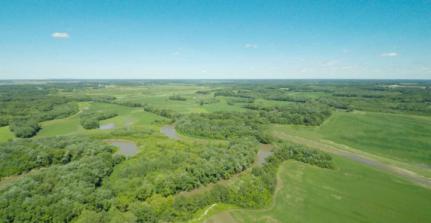Enhancing agro-ecosystem services using integrated hydro-ecologic and socio-cultural models

The sustainability of agro-ecosystems depends on their ability to deliver the entire package of ecosystem services that includes socio-cultural and ecological dimensions. Despite advancements in the conceptualization and measurement of supporting, provisioning, and regulating services, cultural services have proven more difficult to quantify and have remained implicit in many resource management decisions. One of the most important gaps in evaluating the sustainability of agro-ecosystems is the exclusion of the non-material benefits that people derive from ecosystems (i.e., “cultural ecosystem services”). These services are crucial because they provide insights into intrinsic motivations that underpin ownership, management, and conservation of natural resources. Productivity, environmental soundness, and social relevancy can be optimized through research on multiple ecosystem services, particularly those that are cultural in nature. Still, evaluating these services is difficult due to their complexity, coupled with the need to interpret the results and convert them into viable strategic decisions. This is challenging due to high levels of uncertainty and decision complexity, especially in the face of climate variability.
Policy makers, environmental managers, and landowners are collectively faced with difficult decisions about the relative risks and tradeoffs associated with the implementation of different decision alternatives. As a result, decisions that may have significant and potentially adverse and irreversible long-term effects on ecosystem services can be reached and implemented, which will ultimately affect the entire agro-production system. There are needs to establish a conceptual framework that stakeholders can use to accurately quantify the risks and tradeoffs in all decision alternatives involved in enhancing ecosystem services under a combination of diverse environmental and social stressors. A long term goal is to establish an evidence-based decision support system and identify strategies for timely implementation, focused
adaptation, and mitigation-based policies that will promote sustainable agro-ecosystems affected by climate variability. An integrative decision-support system will be anchored in the social and ecological complexities of multiple sites in a watershed, account for desirable outcomes linked to agro-ecosystem services, and allow for systematic and thoughtful responses to change. The research team will address the overall objectives to develop and test a conceptual model for evaluating the effects of system stressors on multiple (provisioning, regulating, supporting, and cultural) ecosystem services, while also identifying and communicating decision alternatives to attain a resilient agro-ecosystem where production, environmental soundness and social relevancy are optimized.
The research team is led by Maria Chu (Department of Agricultural and Biological Engineering), and also includes Carena van Riper (Department of Natural Resources and Environmental Sciences), Cory Suski (Department of Natural Resources and Environmental Sciences), and Bill Stewart.
There are five research objectives: (1) Engage with community stakeholders across the Kaskaskia watershed to examine environmental stressors on agricultural production and map the perceived benefits of places; (2) Determine the projected climate and land use change scenarios (e.g., management schemes, policies, and social expectations) on an agro-ecosystem; (3) Build an integrated agro-ecosystem model to quantify the response of the system (crop yield, bio-energy, water supply, water quality, fish populations) to changes in socio-ecological stressors; (4) Determine tradeoffs residents make among competing drivers (e.g., climate, management schemes, and policies) of an agricultural system using a stated choice experiment; and (5) Establish a decision support system using decision analytics and communicate results to rural community stakeholders, particularly farmers, through capacity building activities.

